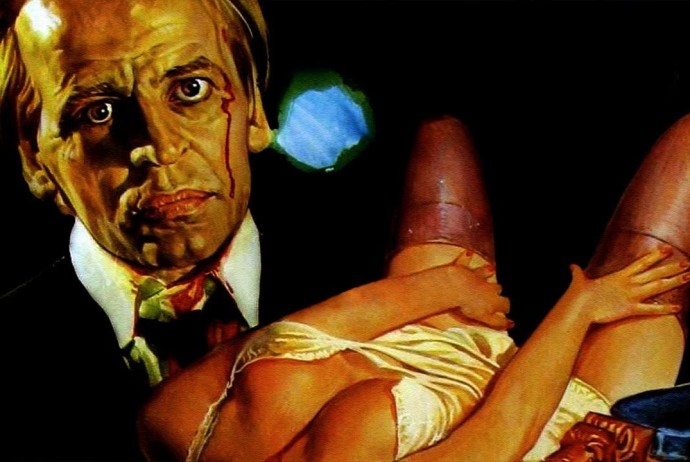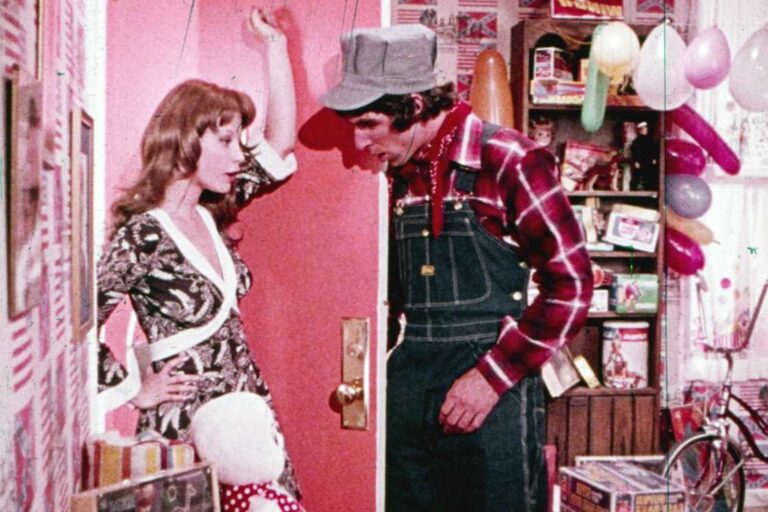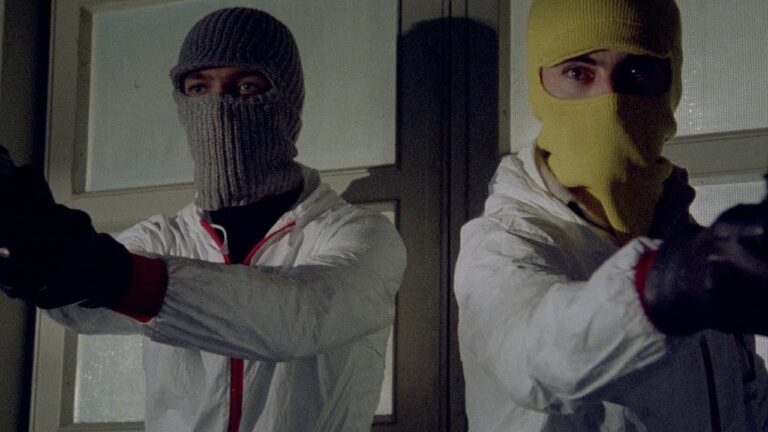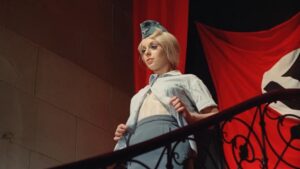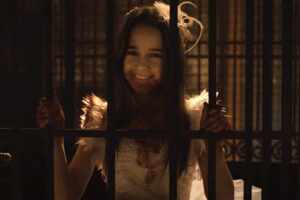![]()
Jack the Ripper (1976) Directed by Jess Franco
There is a funny, common storytelling pattern among all of Jess Franco’s films starring his favorite curvaceous starlet, his muse Lina Romay. Whenever Jesus Franco senses that his films are stagnating – due to the immanent incoherence of his storylines – he inserts Romay’s immodest naked figure in some unapologetically porno-like situation in order to camouflage the languorous with the salacious. And this 1976 Swiss-German production about the most infamous butcher of them all is no exception, as soon as the plot loses momentum and pizzazz, Franco throws in an out-of-the-blue close-up of Lina Romay’s derrière wiggling to the beat of a raunchy burlesque performance in a London bordello. This gratuitous, tacky last-minute resource in the hands of another filmmaker would be seen as a distasteful gag for the audience, but in the hands of a literate sexpert like Jess Franco – in a matter of seconds – it resolves all the soporific narrative stagnation with just that one sexual panorama.
Jess Franco’s Jack the Ripper is one of the most idiosyncratic films about the eponymous murderer you will ever see. It is not your run-of-the-mill movie about the most mythological of all serial killers, because Franco approaches the myth not from the praxis of the sleuthing mystery, but from the practicality of the myth’s intimate psychology. In other words, the film does not pretend to keep the identity of the killer hidden, nor does it pretend to treat him as an esoteric element, but from the outset it takes the responsibility of unveiling the killer and working all the terror of his sinister crimes around the intimate, tormented and chaotic perspective of the killer. More than a horror film that exploits the gothic expressionistic mood of the slaughterer of hookers, it is a psychological period thriller with a few sequences of tremendous gore.
Maniacal Klaus Kinski – I can think of no other actor more appropriately batshit crazy for this role – plays Jack the Ripper, a man who prowls the foggy streets of Victorian London murdering naive prostitutes. The grisly crimes committed by the notorious killer have the same motivation, Jack the Ripper channels his misogyny stemming from his prostitute mother into murdering beautiful, promiscuous women. The aversion that Kinski’s Jack the Ripper develops for female debauchery translates into a kind of inquisitor in the service of Victorian morality against unbridled concupiscence in the London suburbs. For a film about Jack the Ripper, portraying his persona as a puritanical deranged man is a great psychological twist and a major reinvention of the myth, both of which Jess Franco presents with unabashed enthusiasm for his indecorous target audience.
These aspects that only magnify the myth are consistent throughout the film; but the splendid, painterly aesthetics of the canvas portraying it all are the merit of prolific Swiss film producer and director Erwin C. Dietrich – the accomplished man behind some of the finest works of European exploitation cinema – who dabbled in both Nazi exploitation cinema and the women-in-prison genre, and even nunsploitation filmmaking. Dietrich is aware of the sleazy nature of his productions and their irreverent exploitative modus operandi, but he never, ever produced or helmed a picture that looked ugly. He treated lurid subject matter with the same artful discipline with which any other art director would direct a piece of conceptual filmmaking. And in Jack the Ripper, Jess Franco performs under those high standards – it is arguably the film with the most painstakingly sober and luminous visual compositions you’ll ever encounter in his extensive filmography – and while the aesthetic efforts don’t necessarily add anything substantial to the film’s proceedings, or play a fundamental role in the story, what they certainly add is sensuality and an atypical appeal to the macabre content.
Having said that, why doesn’t Jack the Ripper turn out to be a good old Uncle Jess masterpiece? Well, the reason is that the storytelling faces both the unnecessary boredom of a very chatty setup and the disappointment of an anti-climactic closure. Nevertheless, the histrionic routine of having Klaus Kinski participate in Franco’s depraved affairs leaves strikingly nasty spaces for moments worthy of being treasured as the cream of the crop in the filmography of the hated by some, loved by others, controversial Spanish director. I am particularly referring to the lengthy, unfathomably morbid sequence of Kinski as Jack murdering Lina Romay’s character – one of the most barbaric set pieces of violent porn ever made in the history of Euro sleaze fare. If that’s your thing, trust me, it’s worth enduring the more soporific portions to witness the raw cinematic magnificence of Jess Franco at his most effectively sleazy -without his usual salacious snark.
